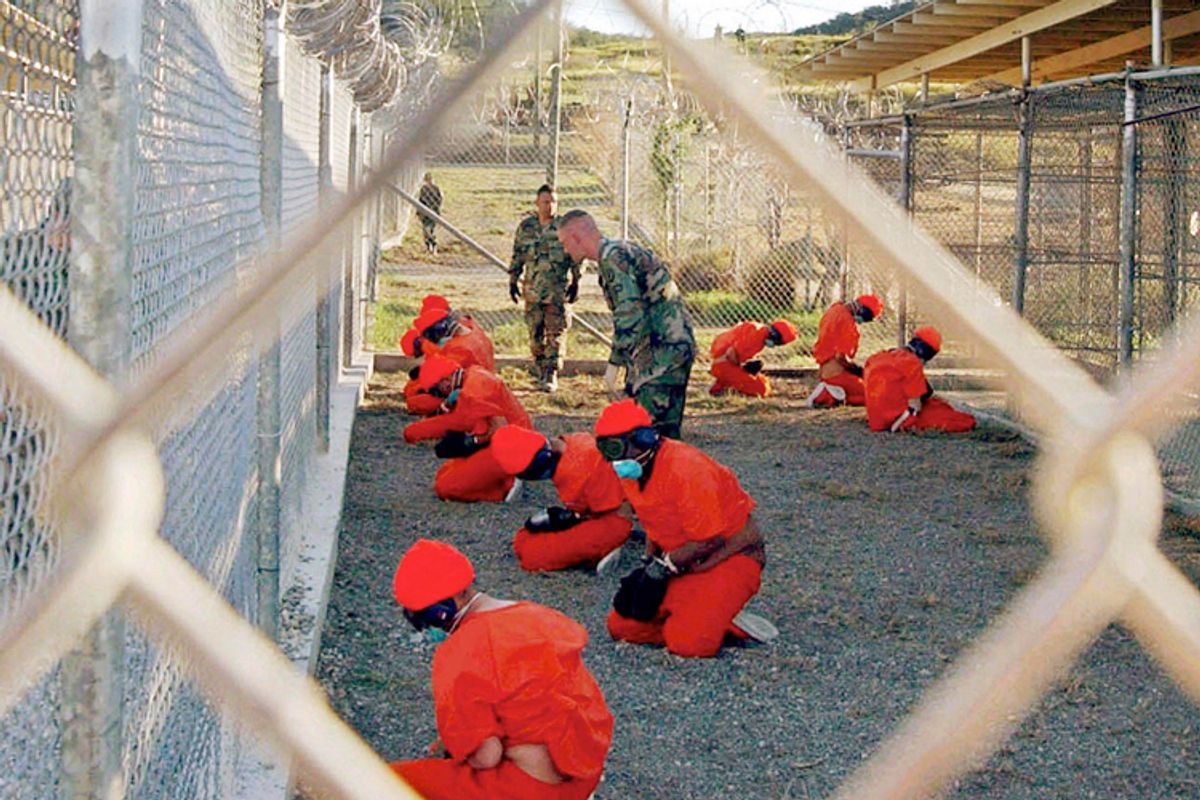Updated: This story was initially posted by the BBC on January 12, 2010. We regret the error.
Original post: Brandon Neely, 29, was a guard at Camp X-Ray when hundreds of detainees were held in grueling conditions in the open-air cages when the detention camp at Guantanamo Bay naval base opened.
Driven by guilt over the treatment of detainees (including his own actions) at Gitmo, Neely, who has since left the army, has traveled to Britain -- the BBC reported this week -- to personally apologize to a number of now-released detainees he had overseen.
The journey of reconciliation began almost a year ago in Huntsville, Texas. Mr Neely, 29, had left the US military in 2005 to become a police officer and was still struggling to come to terms with his time as a guard at Guantanamo.
He felt anger at a number of incidents of abuse he says he witnessed, and guilt over one in particular.
... "The news would always try to make Guantanamo into this great place," [Neely] says, "like 'they [prisoners] were treated so great'. No it wasn't. You know here I was basically just putting innocent people in cages."Mr Neely was 22 when he worked at the camp and left after six months to serve in Iraq. But after quitting the military his doubts about Guantanamo began to crystallise. This led to a spontaneous decision last year to reach out to his former prisoners.
"I was pretty new to Facebook and decided to type in their names to see if their profiles popped up and I came across Shafiq's Facebook page. I decided to send him a little e-mail," says Mr Neely.Released in 2004, after being held for two years, Mr Rasul and Mr Ahmed and another friend from Tipton [in Britain] had been captured in Afghanistan on suspicion of links to the Taliban. The three said they were beaten by U.S. troops although this was disputed by the US government at the time.
After all that, the Facebook communique was a shock to Mr Rasul.
To Mr Neely's astonishment he received a reply and the pair began an exchange of e-mails. It was at this point that the BBC asked if both sides would be prepared to meet in person.
"He's realised what he did was wrong and he's living with it and suffering with it and as long as that he knows what he did was wrong. That's the main thing." [Ahmed told the BBC of Neely's reconciliation efforts.]
Currently 166 inmates remain detained in Gitmo, many held for nearly a decade without charge. Indeed, 86 inmates have even been cleared for transfer. Meanwhile a hunger strike which began in February has led to over 40 inmates being forced fed through nasal tubes, a practice decried as inhumane by the international human rights and medical community.



Shares